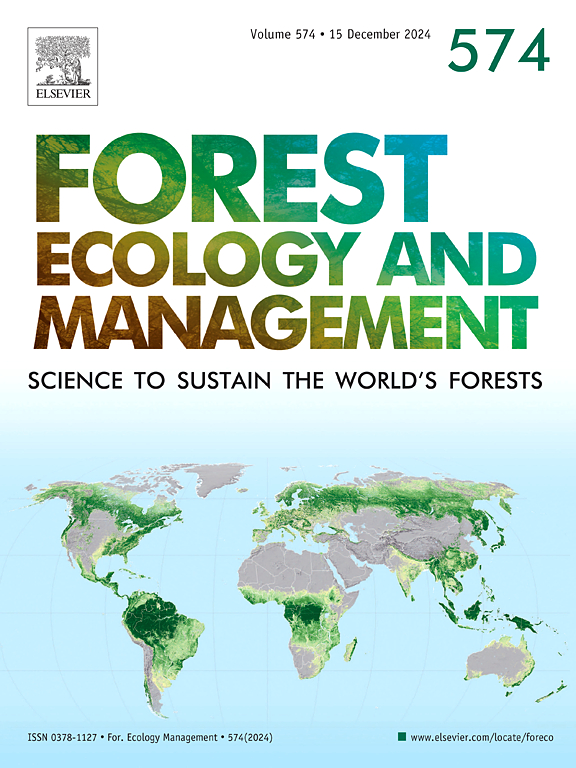Forests, carbon, and climate change: Why our obsession with monetizing forest carbon may be counter productive
IF 3.7
2区 农林科学
Q1 FORESTRY
引用次数: 0
Abstract
Storing carbon in forest ecosystems is commonly promoted as a nature-based solution to climate change in which increases in forest carbon storage are expected to offset carbon released by the burning of fossil fuel. While there is nothing inherently wrong with storing more carbon in forest ecosystems, the scale of what can be achieved through improved forest management is dwarfed by current fossil fuel emissions and may be a distraction from the fundamental cause of climate change. It is important to first recognize that the burning of fossil fuels represents, by far, the single largest source of anthropogenic greenhouse gas emissions. Fossil fuel carbon would not mix with the global atmosphere if humans did not mine it, refine it, and burn it, making fossil fuel carbon a novel and semi-permanent addition to globally cycled carbon. In contrast, carbon stored in forests and soils is a product of photosynthetic capture of carbon and incorporation into live and ultimately detrital biomass. These forms of biogenic carbon represent cycled carbon that is only stored on short-term or potentially centennial timescales making the trade for fossil fuel-based emissions a poor one. Increased carbon storage from ‘improved forest management’ (e.g., increased rotation length or partial harvests) requires that a verifiable net increase in carbon storage is achieved with shifts in forest management strategies. Yet, to date, this verified additionality has proven elusive. Finally, increasing forest carbon storage via conservation or preservation strategies in one region, without reducing global forest product demand, may simply increase net carbon emissions in the parts of the world where a static or increasing product demand is met, otherwise known as “leakage.” Even if the leakage and additionality challenges in forest carbon storage can be met, terrestrial carbon storage can still only be viewed as a tool for temporary drawdown of atmospheric carbon, and thus will only prove effective if it is coupled with significant reductions in fossil fuel emissions, which to date have only been increasing on a global scale. In the absence of significant reductions in fossil fuel emissions, forest carbon storage as a nature-based solution will merely serve as a feel-good action and a distraction from meaningful efforts to reduce fossil based carbon loading of the atmosphere.
求助全文
约1分钟内获得全文
求助全文
来源期刊

Forest Ecology and Management
农林科学-林学
CiteScore
7.50
自引率
10.80%
发文量
665
审稿时长
39 days
期刊介绍:
Forest Ecology and Management publishes scientific articles linking forest ecology with forest management, focusing on the application of biological, ecological and social knowledge to the management and conservation of plantations and natural forests. The scope of the journal includes all forest ecosystems of the world.
A peer-review process ensures the quality and international interest of the manuscripts accepted for publication. The journal encourages communication between scientists in disparate fields who share a common interest in ecology and forest management, bridging the gap between research workers and forest managers.
We encourage submission of papers that will have the strongest interest and value to the Journal''s international readership. Some key features of papers with strong interest include:
1. Clear connections between the ecology and management of forests;
2. Novel ideas or approaches to important challenges in forest ecology and management;
3. Studies that address a population of interest beyond the scale of single research sites, Three key points in the design of forest experiments, Forest Ecology and Management 255 (2008) 2022-2023);
4. Review Articles on timely, important topics. Authors are welcome to contact one of the editors to discuss the suitability of a potential review manuscript.
The Journal encourages proposals for special issues examining important areas of forest ecology and management. Potential guest editors should contact any of the Editors to begin discussions about topics, potential papers, and other details.
 求助内容:
求助内容: 应助结果提醒方式:
应助结果提醒方式:


